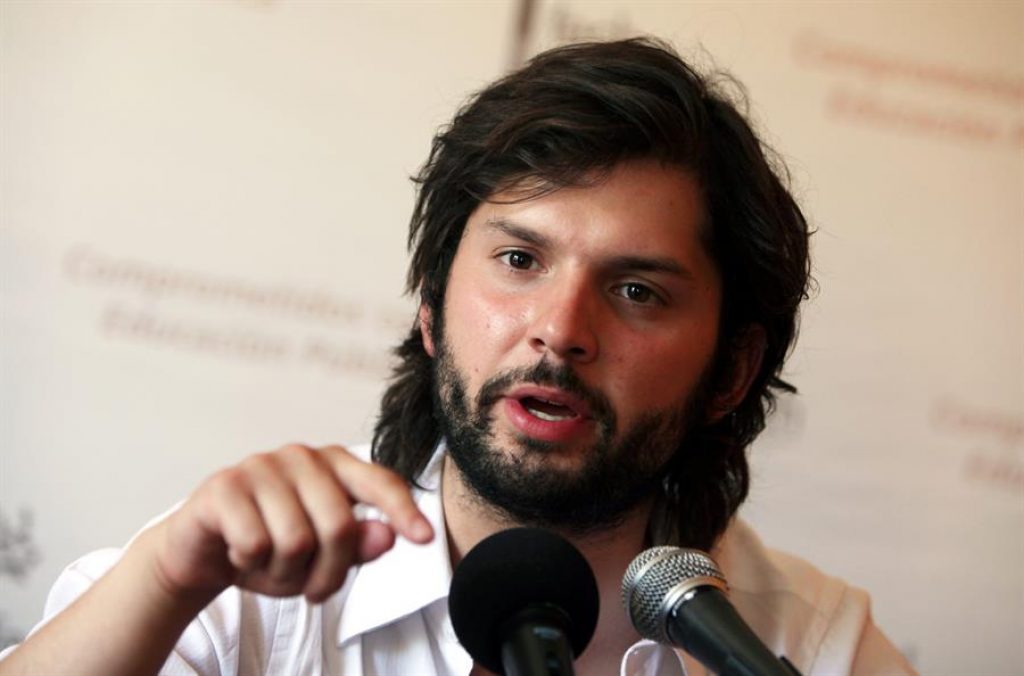The progressive leader Gabriel Boric assumes the presidency of Chile this Friday in the midst of a debate on whether his ascension supposes the continuity of the path severed with the death of Salvador Allende or the beginning of the end of the long process of transition from the dictatorship.
Those who defend the first thesis insist on the parallels between the two politicians: Allende came to power in November 1970 as leader of the progressive Popular Unity coalition, made up of the Socialist, Communist, Radical, Social Democratic parties and the leftist MAPU and API.
He accumulated experience and effort: three electoral defeats and an innate ability to convince those who reluctantly observed his leadership.
But, above all, he aroused the fear and animosity of the right, which from the very day of his electoral victory maneuvered to remove him from the La Moneda palace: assassinations, plots and other subversive actions with the Army as the protagonist, the economy as a weapon throwing and the United States as a capitalist partner.
It was the time of the Cold War, and in the Oval Office, President Richard Nixon and his main adviser, the conniving Henry Kissinger, equated Allende with other leaders of the communist orbit, such as Fidel Castro, although his program tended more towards social democracy.
“It is not possible to explain the early failures of the Popular Unity government or the eventual breakdown of Chilean democracy by blaming one side or the other for the destruction of the system ,” explains academic Arturo Valenzuela.
“It should be understood as the failure of the attempt to structure a viable political center in a highly polarized society, with strong centrifugal tendencies ,” adds the professor, one of the world’s leading experts on the coup that brought General Augusto Pinochet to power.
A NEW LEFT
It is at this point that those who defend the second thesis neutralize the parallels and see in Gabriel Boric a man with strong progressive convictions, but a pragmatic spirit that has been accentuated in recent months, the bulwark that can close the democratic transition from a new Chilean left concept.
Struggled in the student movements, Boric began his path to La Moneda as a result of the social outbreak that in 2019 led thousands of young people like him to ask for political reforms and social justice in a country where neoliberalism had exacerbated financial differences.
With a direct and well-articulated discourse, based on equality, ecology and feminism, and adapted to the ambitions and languages of the new generations with which he identifies, the future president first managed to rise as the leader of the so-called Broad Front.
A coalition of leftist parties similar to the one led by Allende, in which the demonized communist party also participates.
And then, win the elections, go to the ballot and defeat in that second round the ultra-conservative José Antonio Kast, leader of a radicalized right that sees in Boric the revived image of Allende and the shadow of the communism of the seventies, although it has been decades since thawed the Cold War.
“Communism is, so to speak, the “ghost member” of the current crisis. Whose absence hurts the most is those radicalized right-wingers, populist in speech, elitist in pocket, who consider the control of rental prices and the existence of public hospitals “communist” , explains the Spanish philosopher Santiago Alba Rich.
PRAGMATISM AS AN ANTIDOTE
Faced with this, and unlike some similar movements in Europe such as the one led in Spain by the former Vice President of the Government, Pablo Iglesias, Boric opted in the second round for a moderation of the speech that allowed him to project himself to the center, thereby fanning the specters and win the elections with the greatest difference in Chilean history.
It does not mean that those ghosts of yesterday’s polarization have vanished. Numerous experts agree in pointing out that they swarm through the most elite clubs in the country, expectantly facing a future in which they do not believe.
And ready to intervene, despite the fact that the new generations seem to show the same desire to move forward in order to leave behind, only as a reminder in the history books, both the breakdown of democracy and the black and bloody years of one of the worst dictatorships in America.
“Boric’s triumph marked the end of a cycle,” Javier Castillo, professor of Sociology at the Andrés Bello National University in Chile, explained weeks ago in a long article, before noting that he will be the first ruler who “does not come from the trunk of the now defunct Concertación nor of the parties of the traditional right”.
A pragmatic politician, whose career has shown that “he goes where he thinks the possibility of building the necessary majorities lies,” he pointed out.
